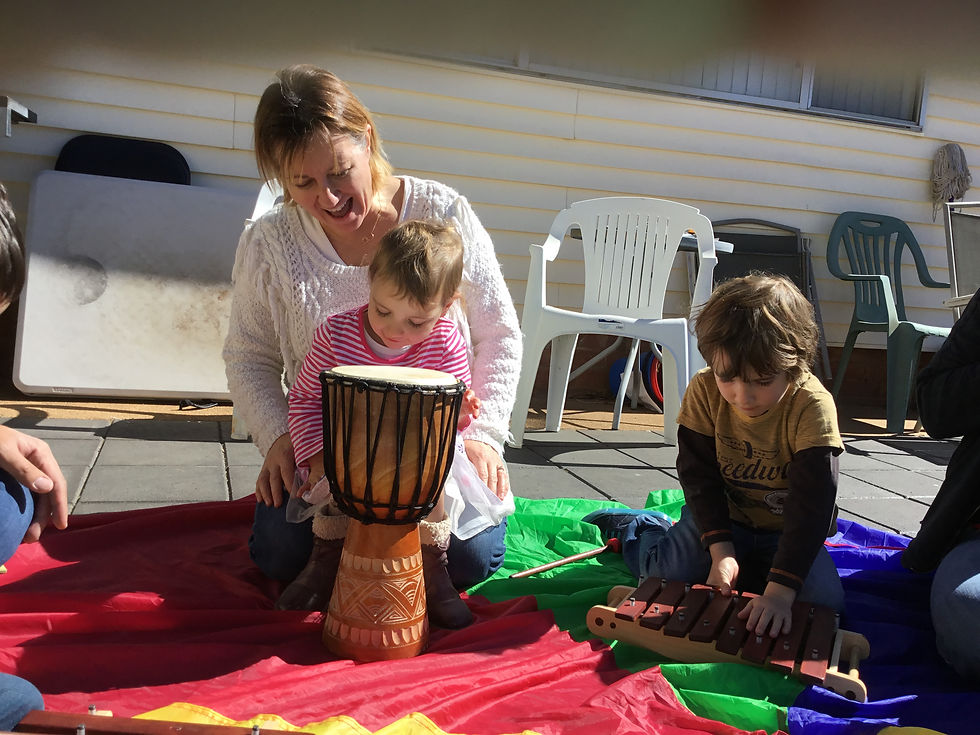
Program - Schools and Early Childhood music
School Tuition
Music plays a significant role in the socialisation and development of young adults and adolescents. By the time they reach school age children are articulating their musical preferences, and begin to show an interest in music education, for example, wanting to learn an instrument.
These likes and dislikes can be formed based on a range of things, and the aim in our school programs is to introduce a wide variety of styles and instruments to develop and expand their musical interests. Our programs can be tailored to meet the curriculum needs of individual schools and can include anything from basic musicality, to learning an instrument, to whole school choirs.
We tailor our learning times based around the age and needs of our students, we provide the following tutition:
-
Choir (All Stages)
-
Ukulele / Recorder (Stage 2 and 3)
-
Guitar (Stage 3)
-
Drama for Fun (Stage 2)
-
Drama Skills including Speech and Drama (Stage 3)
-
General Music including the use of Percussion (All Stages)
-
Special Needs (All Stages)
Please let us know of any individual requirements in the ‘additional information’ section of our contact form. The above is a guide designed to demonstrate what we are able to do, however it is always our aim to work with our schools to provide a tailored experience that caters to the needs and environment of each school.
Please contact us to discuss any of these options further.
Early Childhood Music
It is easy to observe the positive impacts that music has for young children. From birth the brain is wired to respond to both melody and beat. Even the youngest children will bounce sway or move their hands to music. It is this interaction with music in young people that allows for their creative and emotional outlets and expression to develop.
We have observed, and research shows, that toddlers love to move and dance to music and respond positively to repetitious songs. These silly songs provide endless enjoyment; and from an educational perspective, this repetition encourages language development and memorisation.
For preschool aged children this shifts into a desire to sing, generally just for the love of singing. In an age group where the child is finding their own voice, and learning to express themselves emotionally and physically, music is a highly beneficial part of that process. During a time when they are not self-conscious about their perceived ‘abilities’ and are keen to just roar and be heard, music is a crucial tool to enable them to do so.
Our program, which is tailored to your specific needs, uses simple songs, games and dances to:
-
Teach both rhythm and pitch.
-
Introduce both percussion and non-percussion instruments.
-
Develop creative expression while gently enforcing social skills such as waiting your turn and being respectful of instruments.
We offer our early childhood sessions at both childcare centres and our Parkes Studio.
Contact us today for more information or enrol via our online enrolment form.
A guide to Classes and their Durations:
Babies : 0-1 years - 10 - 15 mins
From an early age, babies can hear the different types of sounds, and after just a few weeks they can identify their mother's voice. Exposure to music enhances a child's natural ability to decode sounds and words.
Pre-Toddlers : 1-2 years - 20 - 30 mins
Pre-roddlers are now starting to develop their listening skills as well as their hand-eye and fine motor skills. Music provides additional support in these areas, as well as providing a means of self-expression. This gives the child an outlet for feelings and emotions.
Toddlers : 2-3 years - 30 - 35 mins
Toddlers love to dance and move to music. The key to toddler music is repetition. This encourages language, memorization, developing in-tune singing, and distinguishing between singing and speaking voice. Silly songs make toddlers laugh. Try singing a familiar song and inserting a silly word in the place of the correct word, like “Mary had a little spider” instead of lamb.
A toddlers sense of beat is achieved by letting children reproduce rhythms by clapping or tapping objects to familiar songs and rhymes.
Pre-School : 3-5 years - 30 - 35 mins
Pre-schoolers enjoy singing just to be singing. They aren’t self-conscious about their ability and most are eager to let their voices roar. They like songs that repeat words and melodies, use rhythms with a definite beat, and ask them to do things. Preschool children enjoy nursery rhymes and songs about familiar things like toys, animals, play activities, and people. They also like finger plays and nonsense rhymes with or without musical accompaniment.
All materials, equipment and instruments are provided as part of the program.































